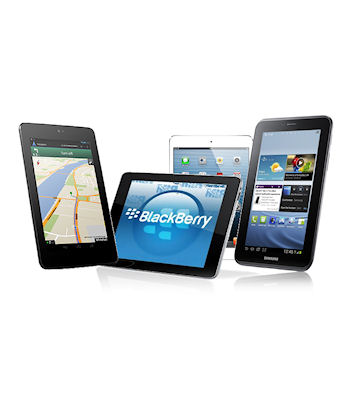Cheaper Tablet Sales Soar And Bite Into Apple’s Market Share


Samsung is fast closing the gap between itself and Apple in a soaring tablet market, according to the latest IDC Worldwide Quarterly Tablet Tracker. The report found that global tablet shipments outpaced predictions reaching a record total of 52.5 million units worldwide in the fourth quarter of 2012.
Apple managed to shift 22.9 million iPads in the fourth quarter, taking a 43.6 percent market share. But this share declined from the same quarter in 2011, when it had a 51.7 percent market share. Samsung more than doubled its market share over the same period, rising from 7.3 percent in 2011 to 15.1 percent in 2012. The South Korean firm sold 7.9 million Galaxy and Nexus 10 tablets.
Firing up
Kindle tablets did well for Amazon, reaching six million sales in Q4 2012. While this was up from the 4.7 million it shipped a year ago, its market share declined from 15.9 to 11.5 percent.
Fourth best-seller was Asus with shipments rising from 0.6 million units in Q4 2011 to 3.1 million in the equivalent quarter last year. Its market share slipped from 7.8 percent to 5.8 percent despite continued strong shipments of its Google-branded Nexus 7 tablet and the highest year-over-year increase in the top five at 402.3 percent.
“We expected a very strong fourth quarter, and the market didn’t disappoint,” said Tom Mainelli, research director for tablets at IDC. “New product launches from the category’s top vendors, as well as new entrant Microsoft, led to a surge in consumer interest and very robust shipments totals during the holiday season. The record-breaking quarter stands in stark contrast to the PC market, which saw shipments decline during the quarter for the first time in more than five years.”
Microsoft failed to make a top five appearance, despite heavily pushing its Surface tablet. According to IDC, it shifted 900,000 units into the channel. Other figures, this time from research outfit iSuppli, suggested that while sales into the channel for the Surface were about 1.25 million, sales out were around 55 to 60 percent, meaning only up to 750,000 were landing in the hands of actual customers.
“There is no question that Microsoft is in this tablet race to compete for the long haul. However, devices based upon its new Windows 8 and Windows RT operating systems failed to gain much ground during their launch quarter, and reaction to the company’s Surface with Windows RT tablet was muted at best,” said Ryan Reith, programme manager for Mobile Device Trackers at IDC.
“We believe that Microsoft and its partners need to quickly adjust to the market realities of smaller screens and lower prices. In the long run, consumers may grow to believe that high-end computing tablets with desktop operating systems are worth a higher premium than other tablets, but until then ASPs on Windows 8 and Windows RT devices need to come down to drive higher volumes.”
Retail context
Other research found that tablets costing under £200 sold really well at retail over the UK Christmas period. IT research company Context said the Blackberry Playbook, slashed in price to £129 in an attempt by the firm to clear stock, sold really well. Nexus 7 and Galaxy Tab 2 7.0 also proved to be popular.
“The Nexus 7 and Galaxy Tab 2 7.0 continue to do well”, said Salman Chaudhry, mobile computing analyst at Context. “Both devices are masterstrokes by Google and Samsung, released at the right time pre-Christmas to create maximum marketing and advertising impact. Compared to Christmas 2011, when Android tablet were not quite up to scratch, by the time Christmas arrived this year, these devices had already received good reviews and were in the forefront of the public’s psyche.”
Recent Posts
Flashpoint enters new chapter with global partner programme
Security vendor Flashpoint debuts partner programme following $28m funding
Channel partner “disconnect” hindering growth
Complex buying journeys and sprawling partner networks hampering customer experience, says Accenture
Cyxtera launches global channel partner programme
Datacentre provider Cyxtera says launch is “milestone in our go-to-market strategy”
US IT provider brings mainframe services to UK
Ensono highlights importance of mainframes still to major industries
VASCO and Nuvias expand distribution across EMEA
Security vendor VASCO looks to replicate UK and German set up across EMEA
Splunk says channel investments driving growth
Splunk details investment in Partner+ programme at .conf2017
